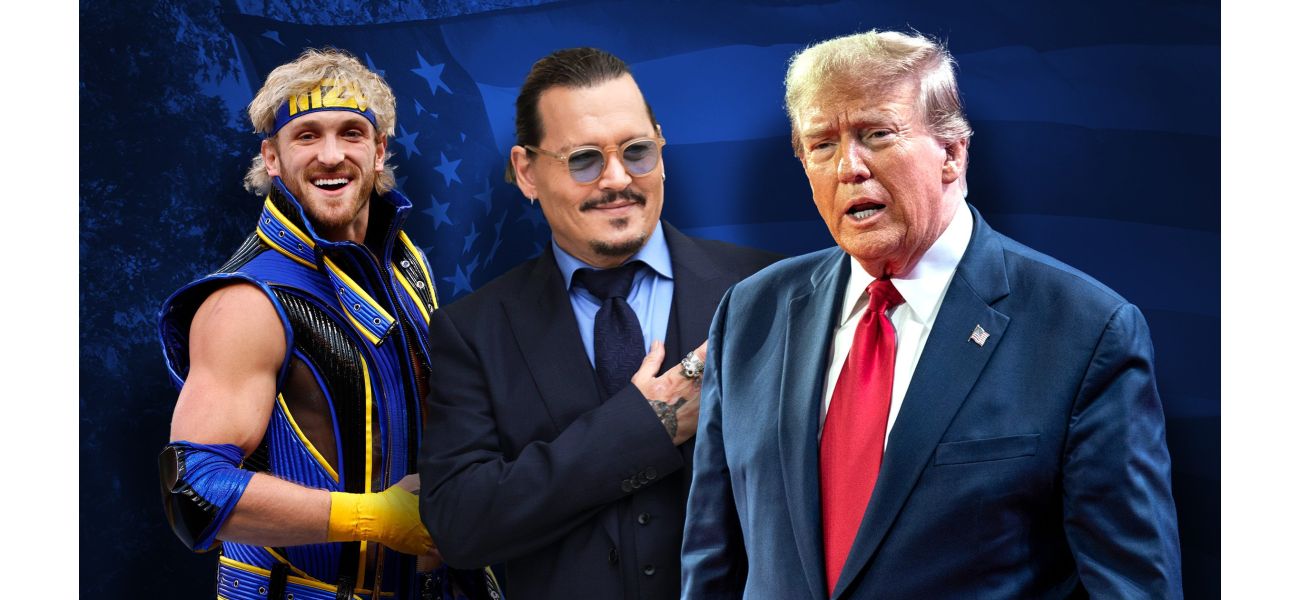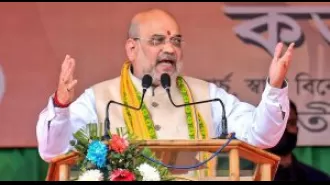Understand the reasoning behind why fans support problematic celebrities.
What is the reason behind fans' unwavering support for their favorites?
November 20th 2024.

The world of celebrity culture has always been plagued by bad behavior. However, with the rise of social media, fans now have larger platforms to defend their problematic idols. The term "problematic" can refer to a wide range of behaviors, but it typically falls into two categories. The first includes celebrities who have been accused of abuse, assault, or criminal activities. In recent years, we have seen high profile cases involving Lizzo, Johnny Depp, and Louis CK, all of whom have faced legal action for unsavory accusations. Despite this, they have managed to make a comeback and regain their place in the public eye.
On the other hand, there are public figures like P Diddy, R Kelly, and Harvey Weinstein who have been convicted and imprisoned for their heinous crimes, such as sex trafficking and sexual abuse. It is shocking to see how some celebrities have been able to maintain successful careers even after being charged with such serious offenses. For example, President Donald Trump was re-elected despite being found liable for sexual abuse, and Chris Brown continues to have a successful music career after being convicted of felony assault.
On the opposite end of the spectrum, there are celebrities who have been called out for discrimination and insensitive behavior. This includes targeting minorities or displaying shocking social conduct. Some examples of this are Logan Paul, Dave Chappelle, and JK Rowling. Despite their controversial actions, these stars have managed to gather devoted fanbases who are dedicated to defending their every move.
The lines around who should be held accountable and how are still blurry, and it often depends on the severity of the alleged crime and the willingness of the public to forgive. But even when a celebrity is facing serious accusations, there are those who staunchly defend them no matter the cost.
This was evident in the highly publicized 2022 trial between Johnny Depp and his ex-wife Amber Heard. Heard had accused Depp of abuse, and the two went head-to-head in court. In the UK, Depp lost a libel case against the Sun for calling him a "wife-beater" after Heard provided evidence to support her claim. However, in the US, where Depp sued his ex-wife for defamation, he won the case and received $15 million in damages. During this time, dedicated Depp fans launched a coordinated campaign on platforms like TikTok to harass and attack Heard, leading to her being described as a "hate machine" by the New York Times.
Dr. Ruth A Heller, an Associate Professor in Media and Communication, believes that the concept of being a fan hasn't changed much over the years, but the internet has expanded its reach. She explains that people often feel emboldened to attack or defend someone when others are doing the same, and the internet makes it easier to do so. However, this doesn't justify coordinated attacks and threats, and it is not just limited to fandoms, but it can happen in response to various situations.
According to Dr. Heller, it is human nature to feel a strong emotional connection to someone or something that has had a significant impact on our lives. This can lead people to fiercely defend celebrities from any attacks and protect them at all costs. We see this behavior in different aspects of our lives, whether it's voting for politicians who have lied or supporting companies with terrible human rights records. When a beloved celebrity is accused of wrongdoing, it can be deeply upsetting for fans, says senior therapist Sally Baker.
Recently, we have seen a major shift in sentiment towards writer Neil Gaiman after he was accused of sexual assault, which he strongly denies. While many fans have openly voiced their disappointment and decision to no longer support his work, there is still a moral conflict for some, as shown by the 24,000 people who continue to follow his Reddit page. One user tried to make sense of the situation, sympathizing with others and reminding them to focus their anger and shame towards the abusers, not just the celebrity they admired.
Baker understands this dilemma all too well. She explains that when a celebrity is accused of a crime, it presents a more clear-cut challenge for fans. They may initially feel a sense of denial, struggling to reconcile the person they idolized with the alleged criminal behavior. This can be a difficult process, and fans may go through a grieving period as they come to terms with the potential downfall of their favorite celebrity. However, when it comes to celebrities who have made social missteps or expressed controversial opinions, fans may have a different reaction.
Celebrity culture has always been a hot topic, with the constant scrutiny and criticism of famous individuals. But with the rise of social media, fans now have a bigger platform to defend their favorite stars, even when they face controversy and allegations of bad behavior.
There are typically two camps when it comes to problematic celebrities. The first includes those who have been accused of serious crimes such as abuse, assault, or criminal behavior. In recent years, we have seen high-profile cases involving celebrities like Lizzo, Johnny Depp, and Louis CK, who have faced legal action due to allegations against them. Despite these accusations, they have all managed to either return to the public eye or have plans to do so.
On the other hand, there are public figures like P Diddy, R Kelly, and Harvey Weinstein, who have been convicted and jailed for their crimes, including sex trafficking and sexual abuse. However, we have also seen cases where being charged with a crime does not necessarily mean the end of a successful career. For example, President Donald Trump was re-elected even after being found liable for sexual abuse, and Chris Brown continues to have a thriving music career despite his felony assault conviction.
Then there are the stars who have been called out for discrimination and insensitive conduct, whether it be towards minorities or through shocking social behavior. Examples include Logan Paul, Dave Chappelle, and JK Rowling. These celebrities have faced backlash and criticism for their actions, but they still have devoted fans who defend them no matter what.
The lines of accountability are often blurred when it comes to celebrity wrongdoing, and it ultimately depends on the severity of the alleged crime and the public's willingness to forgive. But even when a celebrity's actions are brought to light, there are still those who staunchly defend them, no matter the cost.
This was evident in the high-profile trial between Johnny Depp and his ex-wife Amber Heard in 2022. Heard accused Depp of abuse, and the pair went head-to-head in court. While Depp lost a libel case in the UK, he won a defamation case in the US against Heard, who was described as a "hate machine" by the New York Times. During this time, Depp's devoted fans launched a coordinated campaign to harass and ridicule Heard on social media, highlighting the power and reach of fandom in the internet age.
According to Dr. Ruth A Heller, an associate professor in Media and Communication at Sheffield Hallam University, the sense of being a fan has not changed much over the years, but the internet has made it easier to connect with others who share the same devotion. However, this does not justify coordinated attacks and threats towards others. It is simply a reflection of human nature to feel close to someone or something that has had a significant emotional impact on our lives, leading us to defend and protect them.
This phenomenon is not limited to the world of celebrity. We see it in various fields, such as people voting for politicians who have been caught lying or supporting companies with appalling human rights records. When a celebrity we admire is accused of wrongdoing, it can be deeply upsetting for fans, according to senior therapist Sally Baker. The recent allegations against writer Neil Gaiman have caused a shift in sentiment among his fanbase, with some choosing to no longer support his work. This moral conflict is evident on his Reddit page, where he still has a significant following despite the accusations.
In situations like these, it is essential to show kindness and empathy towards the victims, rather than directing anger and shame towards the accused. As Reddit user @personal_reward_60 pointed out, fans often have a parasocial relationship with celebrities, and it can be challenging to reconcile the person they admired with their alleged actions. It can be a difficult and emotional process for fans to come to terms with the downfall of their idol.
In the end, fans of celebrities accused of criminal behavior may respond differently than those whose actions are considered controversial or offensive. It is up to each individual to navigate their feelings and beliefs, but it is crucial to remember to prioritize empathy and understanding towards all parties involved.
On the other hand, there are public figures like P Diddy, R Kelly, and Harvey Weinstein who have been convicted and imprisoned for their heinous crimes, such as sex trafficking and sexual abuse. It is shocking to see how some celebrities have been able to maintain successful careers even after being charged with such serious offenses. For example, President Donald Trump was re-elected despite being found liable for sexual abuse, and Chris Brown continues to have a successful music career after being convicted of felony assault.
On the opposite end of the spectrum, there are celebrities who have been called out for discrimination and insensitive behavior. This includes targeting minorities or displaying shocking social conduct. Some examples of this are Logan Paul, Dave Chappelle, and JK Rowling. Despite their controversial actions, these stars have managed to gather devoted fanbases who are dedicated to defending their every move.
The lines around who should be held accountable and how are still blurry, and it often depends on the severity of the alleged crime and the willingness of the public to forgive. But even when a celebrity is facing serious accusations, there are those who staunchly defend them no matter the cost.
This was evident in the highly publicized 2022 trial between Johnny Depp and his ex-wife Amber Heard. Heard had accused Depp of abuse, and the two went head-to-head in court. In the UK, Depp lost a libel case against the Sun for calling him a "wife-beater" after Heard provided evidence to support her claim. However, in the US, where Depp sued his ex-wife for defamation, he won the case and received $15 million in damages. During this time, dedicated Depp fans launched a coordinated campaign on platforms like TikTok to harass and attack Heard, leading to her being described as a "hate machine" by the New York Times.
Dr. Ruth A Heller, an Associate Professor in Media and Communication, believes that the concept of being a fan hasn't changed much over the years, but the internet has expanded its reach. She explains that people often feel emboldened to attack or defend someone when others are doing the same, and the internet makes it easier to do so. However, this doesn't justify coordinated attacks and threats, and it is not just limited to fandoms, but it can happen in response to various situations.
According to Dr. Heller, it is human nature to feel a strong emotional connection to someone or something that has had a significant impact on our lives. This can lead people to fiercely defend celebrities from any attacks and protect them at all costs. We see this behavior in different aspects of our lives, whether it's voting for politicians who have lied or supporting companies with terrible human rights records. When a beloved celebrity is accused of wrongdoing, it can be deeply upsetting for fans, says senior therapist Sally Baker.
Recently, we have seen a major shift in sentiment towards writer Neil Gaiman after he was accused of sexual assault, which he strongly denies. While many fans have openly voiced their disappointment and decision to no longer support his work, there is still a moral conflict for some, as shown by the 24,000 people who continue to follow his Reddit page. One user tried to make sense of the situation, sympathizing with others and reminding them to focus their anger and shame towards the abusers, not just the celebrity they admired.
Baker understands this dilemma all too well. She explains that when a celebrity is accused of a crime, it presents a more clear-cut challenge for fans. They may initially feel a sense of denial, struggling to reconcile the person they idolized with the alleged criminal behavior. This can be a difficult process, and fans may go through a grieving period as they come to terms with the potential downfall of their favorite celebrity. However, when it comes to celebrities who have made social missteps or expressed controversial opinions, fans may have a different reaction.
Celebrity culture has always been a hot topic, with the constant scrutiny and criticism of famous individuals. But with the rise of social media, fans now have a bigger platform to defend their favorite stars, even when they face controversy and allegations of bad behavior.
There are typically two camps when it comes to problematic celebrities. The first includes those who have been accused of serious crimes such as abuse, assault, or criminal behavior. In recent years, we have seen high-profile cases involving celebrities like Lizzo, Johnny Depp, and Louis CK, who have faced legal action due to allegations against them. Despite these accusations, they have all managed to either return to the public eye or have plans to do so.
On the other hand, there are public figures like P Diddy, R Kelly, and Harvey Weinstein, who have been convicted and jailed for their crimes, including sex trafficking and sexual abuse. However, we have also seen cases where being charged with a crime does not necessarily mean the end of a successful career. For example, President Donald Trump was re-elected even after being found liable for sexual abuse, and Chris Brown continues to have a thriving music career despite his felony assault conviction.
Then there are the stars who have been called out for discrimination and insensitive conduct, whether it be towards minorities or through shocking social behavior. Examples include Logan Paul, Dave Chappelle, and JK Rowling. These celebrities have faced backlash and criticism for their actions, but they still have devoted fans who defend them no matter what.
The lines of accountability are often blurred when it comes to celebrity wrongdoing, and it ultimately depends on the severity of the alleged crime and the public's willingness to forgive. But even when a celebrity's actions are brought to light, there are still those who staunchly defend them, no matter the cost.
This was evident in the high-profile trial between Johnny Depp and his ex-wife Amber Heard in 2022. Heard accused Depp of abuse, and the pair went head-to-head in court. While Depp lost a libel case in the UK, he won a defamation case in the US against Heard, who was described as a "hate machine" by the New York Times. During this time, Depp's devoted fans launched a coordinated campaign to harass and ridicule Heard on social media, highlighting the power and reach of fandom in the internet age.
According to Dr. Ruth A Heller, an associate professor in Media and Communication at Sheffield Hallam University, the sense of being a fan has not changed much over the years, but the internet has made it easier to connect with others who share the same devotion. However, this does not justify coordinated attacks and threats towards others. It is simply a reflection of human nature to feel close to someone or something that has had a significant emotional impact on our lives, leading us to defend and protect them.
This phenomenon is not limited to the world of celebrity. We see it in various fields, such as people voting for politicians who have been caught lying or supporting companies with appalling human rights records. When a celebrity we admire is accused of wrongdoing, it can be deeply upsetting for fans, according to senior therapist Sally Baker. The recent allegations against writer Neil Gaiman have caused a shift in sentiment among his fanbase, with some choosing to no longer support his work. This moral conflict is evident on his Reddit page, where he still has a significant following despite the accusations.
In situations like these, it is essential to show kindness and empathy towards the victims, rather than directing anger and shame towards the accused. As Reddit user @personal_reward_60 pointed out, fans often have a parasocial relationship with celebrities, and it can be challenging to reconcile the person they admired with their alleged actions. It can be a difficult and emotional process for fans to come to terms with the downfall of their idol.
In the end, fans of celebrities accused of criminal behavior may respond differently than those whose actions are considered controversial or offensive. It is up to each individual to navigate their feelings and beliefs, but it is crucial to remember to prioritize empathy and understanding towards all parties involved.
[This article has been trending online recently and has been generated with AI. Your feed is customized.]
[Generative AI is experimental.]
0
0
Submit Comment





